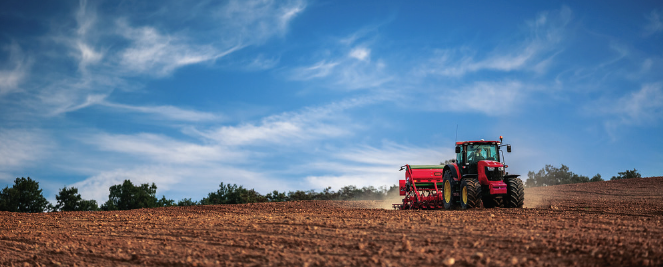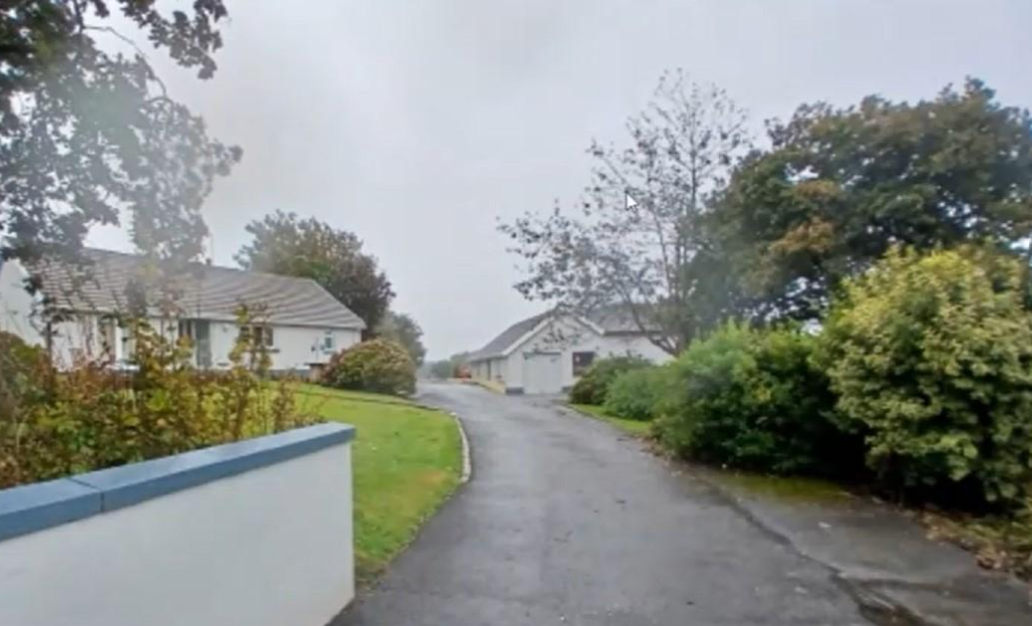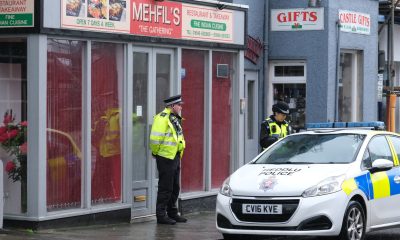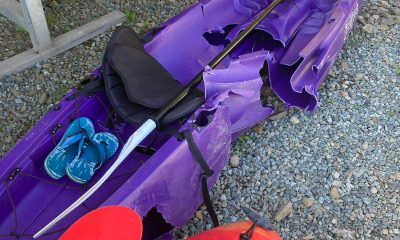Farming
Pressing questions on farm funding’s future

 FOLLOWING a debate in the House of Commons, the attitude of Welsh politicians in the UK Parliament was thrown into sharp focus by comments made by both Conservative minister Guto Bebb and Wrexham’s Labour MP Ian Lucas.
FOLLOWING a debate in the House of Commons, the attitude of Welsh politicians in the UK Parliament was thrown into sharp focus by comments made by both Conservative minister Guto Bebb and Wrexham’s Labour MP Ian Lucas.
It was Mr Lucas’ remarks which attracted the most notable reaction by Welsh politicians in the first instance.
He asked Mr Bebb: “Does the Minister agree that leaving the European Union offers a golden opportunity to assess the level of subsidy paid to farming in Wales to see whether that money can be more effectively and efficiently spent in other areas?”
The inference to be drawn from the question was crystal clear and was pounced upon by Plaid Cymru.
CALL FOR COMMITMENT ON AGRICULTURE
Carmarthenshire’s Jonathan Edwards MP, who was sitting in front of Ian Lucas MP in the Commons, called for Labour to urgently clarify whether it will cut financial support for Welsh farmers.
Plaid Cymru Shadow Cabinet Secretary for Rural Affairs, Simon Thomas, said: “Ahead of the Referendum, the people of Wales were promised that no funding would be lost by leaving the European Union. Since then, Plaid Cymru has made it our duty to fight to protect the funding that Wales receives, but Labour seems to view it as a chance for a smash and grab on Wales’ funding.
“We know that 80% of Welsh farms are dependent on European funding to support their businesses, but Labour has shown complete disregard for the interests of the people of Wales and its agriculture sector.
“Labour really has let the mask slip. Whilst Plaid Cymru is focusing on protecting the interests of Welsh communities, Labour is plotting to cut their funding.”
Mr Edwards said: “Labour’s blatant and worrying attack on Welsh agriculture is yet another sign that the Labour party simply does not understand the Welsh agriculture sector or the challenges faced by our rural communities.
“The Welsh family farm is not only a core component of the Welsh agricultural sector and the Welsh economy, but is the main channel through which we as a nation can achieve food and environmental security.
“This expression of contempt for our agricultural sector is utterly unjustified. Welsh farmers face tremendous financial challenges in selling their produce and Labour should be focusing their efforts on facilitating Welsh agricultural exports, rather than marking them as a target for austerity and cuts.
“The Labour MP’s constituency partner, the Cabinet Secretary for Environment and Rural Affairs Lesley Griffiths, urgently needs to answer whether her constituency’s partner’s question reflects official Labour Party policy.”
FARMERS ARE ‘WEALTHY LANDOWNERS’
The Labour MP was unrepentant about his remarks and has gone on to further criticise the Welsh farming community, stated that Welsh farmers are ‘wealthy landowners’.
The Herald invited the Cabinet Secretary for Environment and Rural Affairs to respond to her Westminster colleague’s remarks.
A spokesperson for the Welsh Government told us: “The First Minister made it clear to the Prime Minister earlier this week he is seeking assurances that Welsh farmers do not lose out financially as a result of Brexit. This means every penny currently received from the EU being replaced by the UK Government. The Cabinet Secretary for Environment and Rural Affairs also reiterated this to the UK Government’s Farming Minister.
“As we prepare to withdraw from the European Union, we must use the opportunity over the coming years to assess the specific needs of the farming industry in Wales and identify how we can forge distinctly Welsh policies that will enable Welsh farming to prosper in a post-Brexit world.”
‘NOT A PENNY LESS’
Welsh Liberal Democrat William Powell told The Herald: “In the economic conditions that we now face as a country, pressure on the public purse will be all the more acute. The Welsh Liberal Democrats are supporting the ‘Not a Penny Less’ campaign in terms of farm support, and this has proved popular on our stand at this year’s Royal Welsh Show.
“However, it is more important than ever for farmers to engage in the public debate, so that there is a better understanding of the vital contribution that they make as custodians of the land, in terms both of maintaining biodiversity, but also to the whole tourist sector, which we know is such a critical part of the wider rural economy.
“However, more important than anything for Welsh farming is securing long -term access to the European Single Market for our quality farm exports – and making that an essential element in the permanent post Referendum settlement. And with Andrea Leadsom MP’s comments about hill farmers ‘looking after the butterflies ’, betraying an evident lack of understanding and empathy for Welsh farming, it is vital that Wales retains a robust and distinct farming policy. Welsh Liberal Democrats will be fighting for this in the time to come.”
LABOUR INSULTS RURAL COMMUNITIES
Andrew RT Davies was trenchant in his criticism both of Mr Lucas and Lesley Griffiths: “These comments once again highlight Labour’s attitude towards rural communities, and it is remarkable that their MPs are actively lobbying to give less money to farmers.
“It follows comments from Leslie Griffiths, the Cabinet Secretary who insulted Welsh farmers by suggesting that they don’t make good business owners. Now they want to take their money away.
“During the campaign, senior UK government ministers gave guarantees that Welsh farmers would not be worse off after the UK leaves the EU, and I will continue to work with those colleagues to ensure that those promises are delivered.”
THE LESS CERTAIN MR BEBB
However, an examination of Guto Bebb’s responses to Commons questions on Wales’ farming sector reveals a less certain picture.
The Undersecretary of State was questioned repeatedly on the impact of Brexit on the funding provided to Welsh farmers.
In response to Ian Lucas’s question, rather than giving a ringing ‘no’ and committing the UK Government to maintaining funding levels, Mr Bebb said (emphases added): “We need to look at the way in which Government spend money. IF there is to be a funding mechanism in the future for Welsh agriculture, it MUST BE LOOKED at in the totality of Government spending.”
That is some way short of promises made by senior UK Government ministers that Wales’ farmers would not be worse off.
And to further underline how conditional UK Government’s support is, responding to a question from Liz Saville-Roberts, Plaid’s MP for Dwyfor Meiryonnydd, the limited reassurance given was an ‘assurance to the farming unions that the current funding situation is in place until 2018’.
That echoed a previous response to Mark Williams, Liberal Democrat MP for Ceredigion, in which the conditionality of UK Government support for Welsh agriculture was again underlined: “… The ongoing support for Welsh farming will be subject to agreements involving this Government, the way in which we exit the European Union and the decisions taken by the future Prime Minister.”
That is, again, a long way short of Andrew RT Davies’s reference to a promise that Welsh farmers would not be worse off.
The reluctance to commit to a definitive answer is striking, bearing in mind that in the same questions to the Welsh Office, Mr Bebb stated that: “The farming sector is the economic backbone of the Welsh rural economy. The total income from farming in Wales is estimated at more than £175 million, but more important is the contribution that Welsh agriculture makes to our rural communities.”
He also remarked that: “More than 60,000 jobs in Wales are dependent on the agriculture sector, and it would be short-sighted in the extreme for any Government to turn their back on a sector that puts Wales on the international map.”
‘FARMING IS WALES’ BEDROCK’
Speaking at the Royal Welsh Show last week, Glyn Roberts, President of the FUW, made a series of emphatic observations on the importance of Wales’s agricultural sector: “There are almost as many people engaged in the milk industry in Pembrokeshire as there are people making a living in our Welsh steel industry. Yet there is a clear imbalance in political focus for supporting these two very important industries – an imbalance which also extends to all our agricultural sectors.”
He added that his aspiration and, indeed, the intention of the Farmers’ Union of Wales is to change this.
“We want to see the value and importance of the rural economy truly recognised, and to build a visible and valued Rural Powerhouse – not something that attracts industrial focus in a small geographic area, like the north-east Wales ‘powerhouse’ built around foreign manufacturing; what is needed is recognition of the fact that 80% of our land mass is rural; that more than a third of Wales’ population live in rural areas; and that farming is the bedrock of our rural communities, without which vast direct and indirect contributions to Wales’ economy as a whole would disappear.”
Farming
‘Poor decision’ New Creamston housing condition overturned

A “POOR DECISION” agricultural worker-only imposed nearly 40 years ago has been removed from a Pembrokeshire property by county planners.
In an application recommended to be approved at the December meeting of Pembrokeshire County council’s planning committee, Tim and Cathy Arthur sought permission for the removal of an agricultural worker-only condition at New Creamson, Creamston Road, near Haverfordwest.
An officer report for members said the agricultural condition was imposed when the dwelling was built in 1988/89, with a later certificate of lawful development granted this year after it was proven the site had been occupied for more than 10 years on breach of that condition.
An application for a certificate of lawfulness allows an applicant to stay at a development if they can provide proof of occupancy over a prolonged period.
Speaking at the meeting, agent Andrew Vaughan-Harries of Hayston Developments & Planning Ltd told members the original agriculture-only condition was a poor decision by planners back nearly four decades ago.
“When this application was made in 1988-89 we go back to the Preseli District Council – I was still in school – it was only a 50-acre farm, it should never have been approved as it shouldn’t have been viable.
“The current applicants have owned it for the last 20 years; they’ve tried to grow apples but couldn’t make a go of it and then went in to holiday lets. We can’t enforce redundant conditions from bad decisions made years ago.”
Approval was moved by Cllr Brian Hall and unanimously supported by committee members.
Business
Cwm Deri Vineyard Martletwy holiday lets plans deferred

CALLS to convert a former vineyard restaurant in rural Pembrokeshire which had been recommended for refusal has been given a breathing space by planners.
In an application recommended for refusal at the December meeting of Pembrokeshire County Council’s planning committee, Barry Cadogan sought permission for a farm diversification and expansion of an existing holiday operation through the conversion of the redundant former Cwm Deri vineyard production base and restaurant to three holiday lets at Oaklea, Martletwy.
It was recommended for refusal on the grounds of the open countryside location being contrary to planning policy and there was no evidence submitted that the application would not increase foul flows and that nutrient neutrality in the Pembrokeshire Marine SAC would be achieved within this catchment.
An officer report said that, while the scheme was suggested as a form of farm diversification, no detail had been provided in the form of a business case.
Speaking at the meeting, agent Andrew Vaughan-Harries of Hayston Developments & Planning Ltd, after the committee had enjoyed a seasonal break for mince pies, said of the recommendation for refusal: “I’m a bit grumpy over this one; the client has done everything right, he has talked with the authority and it’s not in retrospect but has had a negative report from your officers.”

He said the former Cwm Deri vineyard had been a very successful business, with a shop and a restaurant catering for ‘100 covers’ before it closed two three years ago when the original owner relocated to Carmarthenshire.
He said Mr Cadogan then bought the site, farming over 36 acres and running a small campsite of 20 spaces, but didn’t wish to run a café or a wine shop; arguing the “beautiful kitchen” and facilities would easily convert to holiday let use.
He said a “common sense approach” showed a septic tank that could cope with a restaurant of “100 covers” could cope with three holiday lets, describing the nitrates issue as “a red herring”.
He suggested a deferral for further information to be provided by the applicant, adding: “This is a big, missed opportunity if we just kick this out today, there’s a building sitting there not creating any jobs.”
On the ‘open countryside’ argument, he said that while many viewed Martletwy as “a little bit in the sticks” there was already permission for the campsite, and the restaurant, and the Bluestone holiday park and the Wild Lakes water park were roughly a mile or so away.
He said converting the former restaurant would “be an asset to bring it over to tourism,” adding: “We don’t all want to stay in Tenby or the Ty Hotel in Milford Haven.”
While Cllr Nick Neuman felt the nutrients issue could be overcome, Cllr Michael Williams warned the application was “clearly outside policy,” recommending it be refused.
A counter-proposal, by Cllr Tony Wilcox, called for a site visit before any decision was made, the application returning to a future committee; members voting seven to three in favour of that.
Farming
Farmers Union of Wales Warns: Labour’s 5G Expansion Risks Rural Blackspots

FUW Joins Landowners in Urgent Call to Pause Controversial Telecoms Reforms
THE FUW (Farmers’ Union of Wales) has warned that rural communities face worsening mobile blackspots and farmers risk losing essential income if the Labour Government expands a telecoms policy blamed for stalling Britain’s 5G rollout.
In a letter to Digital Economy Minister Liz Lloyd, the FUW aligns with landowners, investors, and property experts demanding a halt to Part 2 of the Product Security and Telecommunications Infrastructure (PSTI) Act 2022. Extending the 2017 Electronic Communications Code (ECC) would “entrench failure,” the group argues, sparking more stalled renewals, site losses, and legal battles just as Wales needs swifter rural connectivity.
The 2017 reforms empowered operators to cut mast rents—often by 90%—from hosts like farmers, councils, and NHS trusts. Far from boosting rollout, they’ve ignited over 1,000 tribunal cases since 2017, versus 33 in the prior three decades. Rural goodwill has eroded, with hosts now eyeing exits.
“Every lost mast isolates households, schools, and businesses,” the FUW states. “No public subsidy can fix this systemic damage.”
A survey of 559 hosts (via NFU, CLA, BPF) shows:
- 35% considering full withdrawal.
- 70% of expired lease holders facing operator legal threats.
Landowner Ted Hobbs in New Tredegar shares the pain: “My 1995 Vodafone lease was £3,500 yearly, renewed in 2010 at the same rate. It expired May 2025—now they demand a slash, backed by the Code. This is confiscation, not partnership.”
Labour’s push forward—despite earlier opposition and a critical consultation—ignores these red flags.
FUW President Ian Rickman adds: “Farmers hosted masts in good faith for rural connectivity. Punishing them with rent cuts sabotages Wales. Halt this now, restore trust, and incentivise real progress.”
The coalition urges ministers to reopen dialogue before deepening rural divides. Wales can’t afford more policy missteps.
-

 Crime2 days ago
Crime2 days agoDefendant denies using Sudocrem-covered finger to assault two-month-old baby
-

 Crime2 days ago
Crime2 days agoPembroke rape investigation dropped – one suspect now facing deportation
-

 Crime6 days ago
Crime6 days agoMan denies causing baby’s injuries as police interviews read to jury
-

 News2 days ago
News2 days agoBaby C trial: Mother breaks down in tears in the witness box
-

 Crime2 days ago
Crime2 days agoLifeboat crew member forced to stand down after being assaulted at Milford pub
-

 Crime3 days ago
Crime3 days agoDefendant denies causing injuries to two-month-old baby
-

 Crime3 days ago
Crime3 days agoPembrokeshire haven master admits endangering life after speedboat collision
-

 Crime17 hours ago
Crime17 hours agoMother admits “terrible idea” to let new partner change her baby’s nappies alone
















